Lamis Shibli Ghadir explains the challenges and the rewards of being an Arab social worker in the Ein Kerem Paediatric Intensive Care Unit at Hadassah Hospital in Jerusalem.
I am a social worker in the Paediatric Surgical Department and Paediatric Intensive Care Unit (ICU) of Hadassah University Hospital in Jerusalem, and I teach the students at the Hebrew University School of Social Work.
I am proud that we provide healthcare services for all patients, whether they are from West Jerusalem, East Jerusalem, the settlements, or Bethlehem and Ramallah; whether they are Jewish, Arabic-speaking Muslims, Christians or Druze.
Every day I work hard to communicate, to build trust, and to shield the patients from the conflict. But the rewards are huge. Hadassah is a fantastic institution that models co-existence.
Building communication and trust
Communication is a challenge. Half of the children hospitalised in Hadassah speak Arabic. Children from the West Bank must be accompanied by a family member and they rarely speak Hebrew. I help them to secure the permit; I talk with the army about the situation and advise the mother and the father. For children from Gaza, it’s a bit different. There is a greater concern about security so young parents cannot come to Israel from Gaza. Instead, the child is accompanied by their grandfather or grandmother.
We have three Arab social workers in the paediatric wing. Two of us work in the Paediatric Oncology department because 30 per cent of patients are Palestinians from the West Bank and Gaza and they don’t speak Hebrew at all. We also have medical clowns, and we run courses for the nurses and the doctors to learn basic Arabic – so they can speak with the children. And we have translators, of course, but they are only a partial solution. A Jewish social worker talking through a translator still can’t understand the culture as an Arab social worker can. For example, a nurse called me and said: ‘This father won’t hold his child. I don’t think he wants his baby.’ I said: ‘Ok, but look, this is an Arab man. Maybe he isn’t used to taking care of a baby at this age. It’s not unusual.’
Communication can bridge divides. For example, I remember Yousif, a nine year old from East Jerusalem who had a heart operation and was hospitalised last summer during the Gaza war. His mother cried all the time, even when Yousif improved in the ICU. The nurses asked, ‘Why is she still crying all the time? Yousif is improving.’ You see, his mother had a relative in Gaza but asked me not to say anything about this to the staff. She said to me: ‘I’m afraid that if they know, they will not treat my children like the Jewish children.’ I told her, ‘We have wonderful staff, they will not do that.’ Over time she had more and more conversations with the nurses and developed a close relationship with them. Together, they celebrated Yousif’s birthday. And on the first day Yousif got out of bed a nurse took him to the Hadassah mall and bought him gifts. On his last day with us, his mother told the nurses, ‘I’m sorry, I have a relative in Gaza and I was afraid to tell you. I’m sorry that I thought that you maybe will hurt my child if you knew I had a relative in Gaza.’ They gave her a hug.
Beyond Politics
Our goal as social workers is to separate the paediatric unit from politics. Half of our team are Arab social workers and half are Jewish; we do not enter political discussions with our patients because we don’t want to impact the quality of health care we give.
For example, I had an eight year-old girl in paediatric intensive care. A kettle of boiling water had fallen on her and she had burns over 40 per cent of her body. Her father had been killed during the Second Intifada in a terrorist attack, but I didn’t know this. Ester (pseudonym), her mother, was a 43-year-old religious Jewish woman, a widow, with six children who lived in a settlement near Jerusalem. She was crying and concerned about her daughter’s condition. A nurse told me that the father had been killed during the Second Intifada. Our department’s policy is that in this situation, a Jewish social worker must take care of the family. The mother could not understand this and when the child was moved to the paediatric surgical department two days later, she asked the nurses to call me, saying ‘I want Lamis, she has experience with plastic surgeons and I want her.’ So I came to her. She said to me: ‘I can’t understand the condition of my daughter. I want you to come with me to the doctor and arrange the questions that I will ask them.’ I went with her and after that she asked me to come to talk with her every day. She was there for a month and a half and we had a wonderful professional relationship. We never talked about the father killed in the intifada. On the day she was released from Hadassah she gave me a big hug and said thank you for everything.
Sometimes, a Palestinian child needs urgent attention, so their parent comes to us in the ambulance without a permit. So I must arrange it on the phone with the security people who deal with permits. If the child is from the West Bank it’s easy; everyone can come in. Gaza is different. Gazan children can come with only one family member and to get a permit for another member, the first must go back to Gaza.
Actually, some children come to Hadassah in an illegal way. Parents in the West Bank know that Hadassah is an excellent hospital, and that if they come to Hadassah without any arrangement, the Director of Hadassah will not say ‘no’. That’s an issue right now, given the money problems in Hadassah, but we are a hospital and we cannot say to a father or a mother, ‘give us money, or you can’t enter.’ Hadassah is not a bank, it’s a hospital.
Sometimes we deal with children who have been arrested for throwing stones. They come to us from jail or with the police. In that situation, we need the parents to sign for an operation but the police may not want the family to have contact with the child. But we say that the parents must know about the condition of their children. So we talk with lawyers at Hadassah about how to resolve this.
As a social worker, the child is always a patient first and foremost. For example, in the Surgical Department we had a ten year old boy who had been hit with rubber bullets. He came in with the police, and could not see and was in pain. We said to the police: ‘We need the father or the mother of the child. Sure, you can do your investigation and talk with the child, but we need the parents, because he is a child!’ They consider what we say as social workers and appreciate our assessment, but it is complicated.
Access to Hadassah is so important for Palestinians. They think, ‘Finally I’m in Hadassah. They will help me.’ The hospitals in the West Bank are not at the same level, lacking plastic surgery, brain surgery, and the specialisations we have at Hadassah. Palestinians are very grateful to come here, and if they come through the Peres Center for Peace they will not pay, so it’s fantastic for them.
And this is something that happens in almost all the major medical centres in the country. They take in Palestinian children and adults who need specialised treatment.
Towards co-existence
Maybe, at its best, Hadassah gives us a glimpse of what co-existence can look like. The Hadassah Hospital Elementary School is 40 per cent Arab and 60 per cent Jewish. We offer music therapy, drama therapy, and cooking. You can see Arabic children and Jewish children cooking together, listening to music together, and celebrating Muslim and Jewish holidays. I explain the meaning of the Muslim holidays to the Jewish children and it’s really fantastic.
Perhaps a medical crisis helps a person overcome their fears and preconceptions. Recently, for example, an ultra-Orthodox woman bore a baby with a severe heart defect. She was 39 years old and this was the tenth child she had given birth to in Hadassah. She was suffering from depression and taking antidepressants while her baby was in intensive care in another department. She wanted to be near her baby so I invited her to move into a family room near the ICU. But she was afraid because the other families were Arabs. (The synagogue attack in Har Nof had happened only the day before.) I met here and said, ‘I know all the mothers in the ICU, they are mothers that are facing the same difficulties as you, the same hard experiences as you, and they are concerned about their children’s conditions, as you are. They too are crying all the time. I promise to come and talk with you every day.’ In the end – it was a long conversation – she agreed to go to the family room.
One of my new students from the Hebrew University was sitting in on this meeting and was shocked that the mother didn’t recognise that I was an Arab. The student said to me: ‘I’m so sorry for you, how can you deal with this?’ I told her that there are a lot of Jewish people here who don’t recognise that I am Arab, and they talk about their difficulties to me. People bring the outside world to Hadassah and as a social worker I have to deal with what they bring. I have to understand each individual. This mother was suffering from depression and she was afraid. But now she has a wonderful relationship with the other mothers in the ICU.
Another example of bridging divides was our work with Musa, a baby boy with a heart defect. When his mother was 20 weeks pregnant she went to her Palestinian doctor in Ramallah. After an ultrasound scan she discovered that her baby had a heart defect and would die after he was born. She got a second opinion at the Islamic Hospital in East Jerusalem, which has an excellent relationship with Hadassah. The doctors there advised her to give birth in Hadassah where the child could be operated on. It was a very complicated surgery and he lived most of the first year of his life in paediatric ICU with us. I remember the first time he smiled. The doctor took a picture and ran down the hall in the ICU shouting ‘Musa has finally smiled!’ Musa has now celebrated his second birthday at home with his family. He needed a feeding machine and a ventilator, so the Palestinian Authority gave money to Hadassah and the hospital bought these machines at a special price.

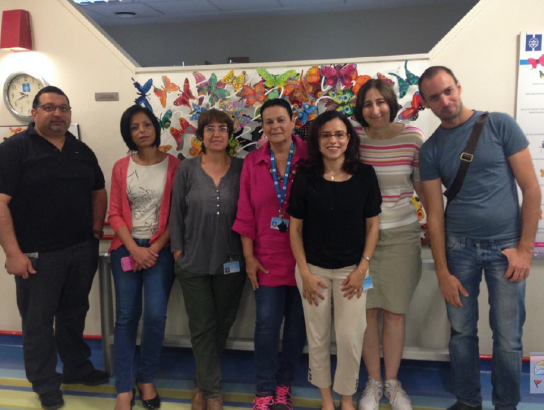
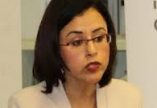
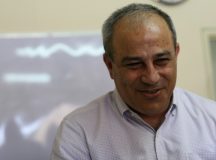
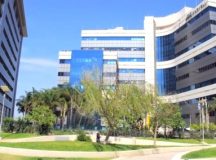
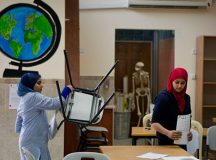





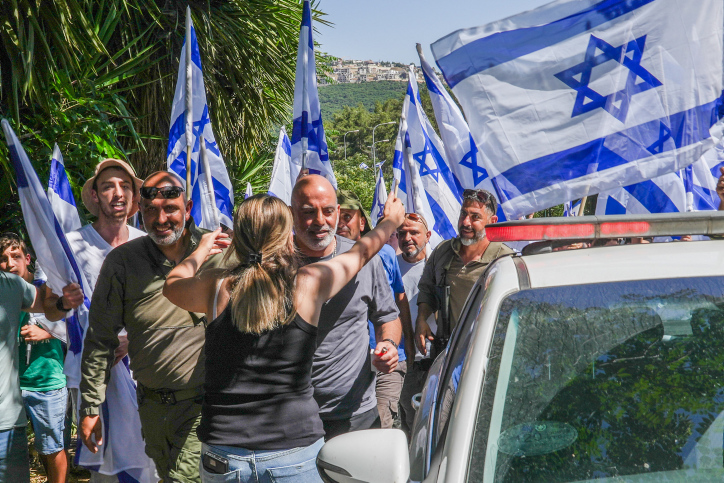

























Sir/madam.
I have just read the article by Lamis. This is wonderful.I am a retired Probation Officer and in the past have brought parties of Social Workers and Probation Officers also other related professions to Israel so that they could have experience of the Social Work being undertaken in Israel also on the West Bank. Despite of all the political problems it is rewarding to see that the inter community cooperation we observed continues and flourishes. Mazeltov to you all.